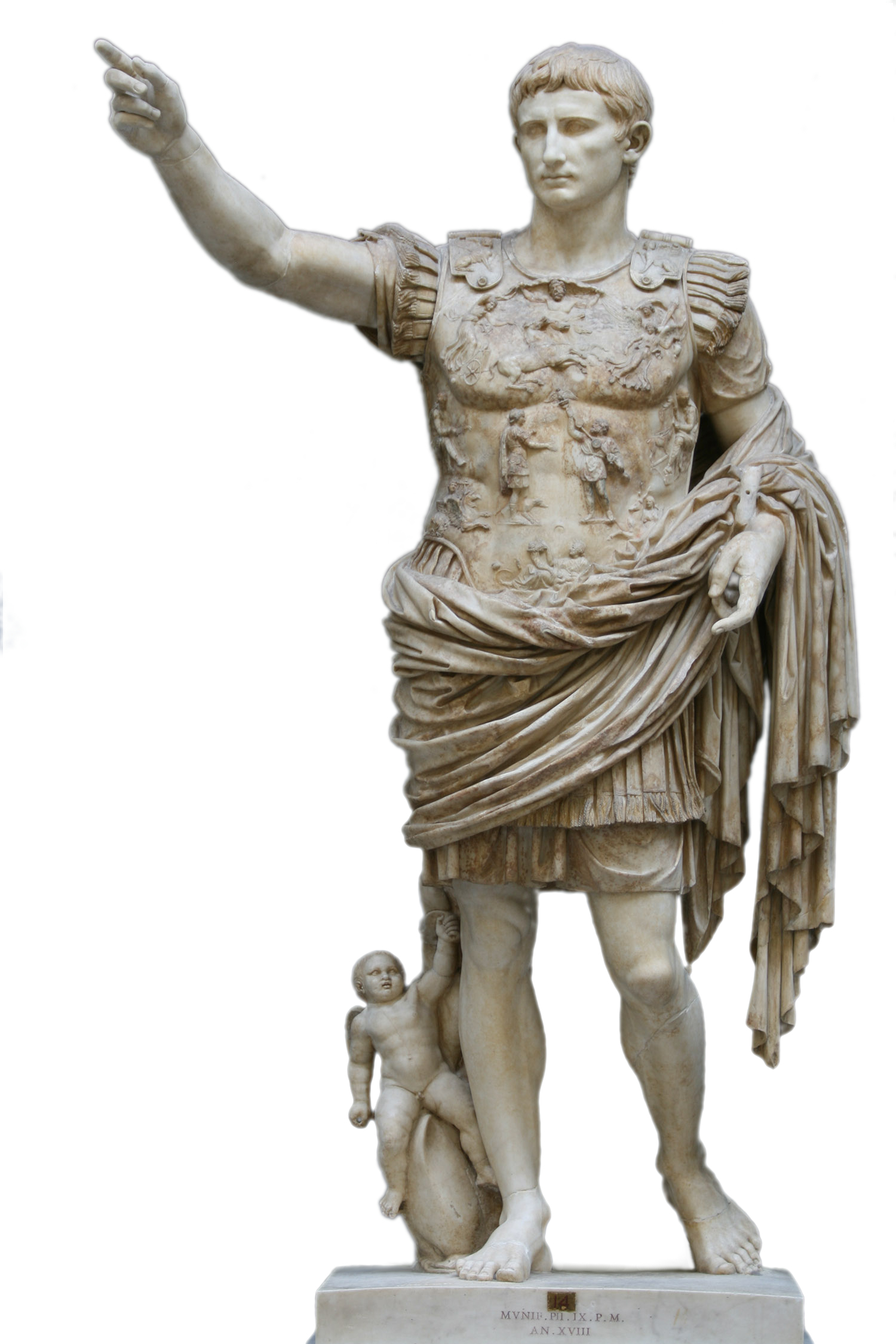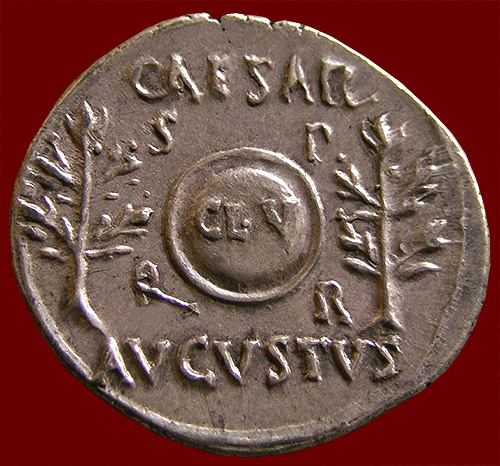 The Role of Augustus as Imperator is an important theme in the OCR Classical Civilisation syllabus, so having spent a pleasant day or two reading a new (2018) book on Augustus at War, I thought I'd draw upon it to give some ideas.
The Role of Augustus as Imperator is an important theme in the OCR Classical Civilisation syllabus, so having spent a pleasant day or two reading a new (2018) book on Augustus at War, I thought I'd draw upon it to give some ideas.
Powell has written a very mixed genre text: narratives of the various wars fought by and on behalf of Octavian/Augustus (pp.1-170); a shorter (pp.171-220) analysis of these, though there is relatively little new in the analysis not already present in the narratives; extensive prosopography (large tracts are devoted to potted biographies of figures) pp.236-85); an old (out of copyright) translation of the Res Gestae is also included.
Powell's basic premise is that Augustus was a competent commander himself, but exceptional in identifying and promoting military talent to make his an age of expansion and peace won through war. He notes the ways in which Augustus appropriated the acclamation Imperator as a name or title and counted the acclamations of his subordinates as being his in virtue of his position as proconsul of the imperial province.
He could perhaps have made more of this and have emphasised the ways in which the triumph came to be purely for the imperial family and how the spoila opima was denied to Crassus on a technicality as Augustus not merely acquiring military prestige through others, but acting to block theirs and stifle rivals. These ideas are mentioned, but not emphasised.
The lists of wars fought by Augustus and collated by Powell:
is very effective in making the point regarding the sheer scale of military activity and the limited role taken by Imp. Caesar/Augustus in personally effecting these, though his role in planning and his constant journeying to be near the theatres of action are noted.
Following the narrative of these is made easier in some cases by maps with armies and their movements marked (e.g. for Illyricum in 8CE) and harder by their absence for others (e.g. no map of the Yemen to explain the movements of the Arabian expedition). The decision to only use ancient place names is also disconcerting in places (I read the whole narrative of the wars in Iudaea without realising that Hierosolyma was Jerusalem).
His collection of coins is useful for thinking about messages and his claim that the cumulative impact of so many coins showing victory trophies, returned standards, triumphal images, crocodiles and the like would be to create an image of a time of victories even despite the panic of the 9CE Varian disaster is very plausible. He does not though seem to stop and consider who chose the images (presumably not Augustus?), approved them (perhaps Augustus?), decided which images went on which coinage etc. (Augustus?) and instead implies a very top-down model of propaganda (the word is the chapter's title [Appendix 4]). In this area he does seem a little weak, for instance noting (p.275) that Maecenas was patron to poets including Propertius, who, "lauded the new era led by Augustus and sang the praises of his legati". It is not clear that that is entirely the case (e.g. Propertius II.15.41ff trans Guy Lee):
or in a poem actually part of the OCR course:
(trans A.S Kline taken from Poetry in Translation. http://www.poetryintranslation.com)
in which we might note how far from seeing glory Propertius is!
Virgil and propaganda is of course a whole debate in itself.
Discussion of the Prima Porta Augustus (shown at the top) was interesting with the suggestion the ad locutio pose represented the time at which an acclamation as imperator was received, but the idea the bare feet indicate modesty (the Cupid clinging to the leg is omitted entirely) doesn't quite ring true - bare-footed statues are possibly indicative of divinity (see for instance Squire, M. (2013), Embodied Ambiguities on the Prima Porta Augustus. Art History, 36:
242–279.).
There were elements too that seemed to point in interesting directions and I could have wished he had explored. Powell has Beard in the bibliography, but never engages with any of the issues about how a triumph worked that she raises, instead giving a description of it with no hint that there may be debate. He also noted coordinates for locations in Germany, but I had to Google this to discover discussion at Lacus Curtius about Ptolemy giving coordinate locations (I had no idea this happened).
I found this to be an immensely useful book, clarifying issues about the Vindelici (as appearing in Horace), summarising Augustus' wars and successes to make the case for him as an imperator, providing a resource on who fought where, when and why to which there will be many reasons to return in future.




